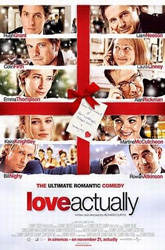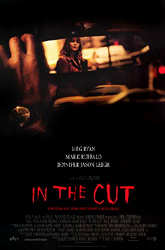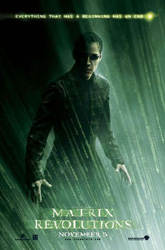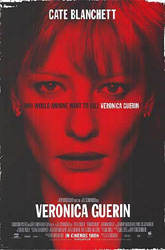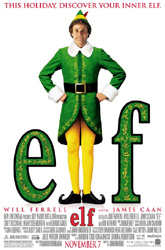 Director: Starring: Release: 7 Nov. 03
|
Elf BY: DAVID PERRY In a Saturday Night Live parody of one of VH1ís Behind the Music specials, Will Farrell plays the cowbell in 1970s rock band Blue ÷yster Cult, famed for their ďDonít Fear the ReaperĒ and its incessant cowbell. Christopher Walken tells him he really ďdigsĒ that cowbell and asks for more. Itís comic genius because on one side is Farrell going crazy with this cowbell even though it sounds horrible; on the other side is the ever-respectable Walken enjoying it. Most of Elf, Farrellís second film since leaving Saturday Night Live, is like this, with the comedian doing his antics and the rest of the cast (including Bob Newhart, Ed Asner, and James Caan) convincing us that heís not even hit the nexus of his talents yet. But he has, and that paramount achievement is neither in this or his previous film, Old School. Instead, the genius of Farrell was left behind at SNL, where his absence has been felt as Lorne Michaels tests out various other actors to play President Bush (Darrell Hammond and Chris Parnell, both terrific impressionists, arenít yet at the same level as Farrell when it comes to Bush). The way Farrell furrowed his brows to say ďstrategery,Ē whined like a little boy to admit that he didnít really want to follow in his fatherís footsteps, and brought frat boy antics into the White House was amazing in its exactitude of a stereotype (merited or not) that makes the sitting president so entertaining. Although Farrell has some fun with the naÔvetť that his new character needs, the script isnít strong enough to let Farrell move around in the character and find any discernable amount of absurd humor. There are fairly good laughs, but nothing terribly memorable. Farrell plays Buddy, a man who spent his entire life in Santaís workshop under the misconception that he is an elf. As a baby, he crawled into the bag of toys and was unfound by Santa (Asner) until he had returned to the North Pole. When he learns of his real lineage, the child of Walter Hobbs (Caan), a cranky childrenís book editor who works in the Empire State Building, Buddy decides to make the trek to Manhattan and secure his place in the real world. But things arenít the same in the States as they are in the Poles. No one seems willing to accept a lanky man dressed as an elf into their lives -- heís lucky that itís almost Christmas so that he can get a job at a department store as one of the minimum wage workers. Meanwhile, as the clichťs dictate, he falls in love with a coworker (Deschanel; wasted in a role that lacks her sardonic sense of humor) and somehow convinces his father, now married to another woman (Steenburgen) and parenting (though just barely) a younger son (Tay), that there is hope for Christmas. Everyone sings, the whole world is filled with joy, and New Line thanks you for giving them 10 bucks for this assembly line production.
Directed by Jon Favreau, a gifted comedian himself, Elf feels
forced, insecure, and overtly sappy. It is a Christmas movie, but it lacks a
family affair mentality for accessibility and levity for adult contentment.
At its best moments (the cameo by those stop-motion animation characters
from Rudolph the Red-Nosed Reindeer is inspired), the film is a clear
indication of an actor who is on his way to a strong post-SNL career much
like Eddie Murphy and Bill Murray. For most of it, though, itís Joe Piscapo
all the way. |
|
| ©2003, David Perry, Cinema-Scene.com, 7 November 2003 | ||

